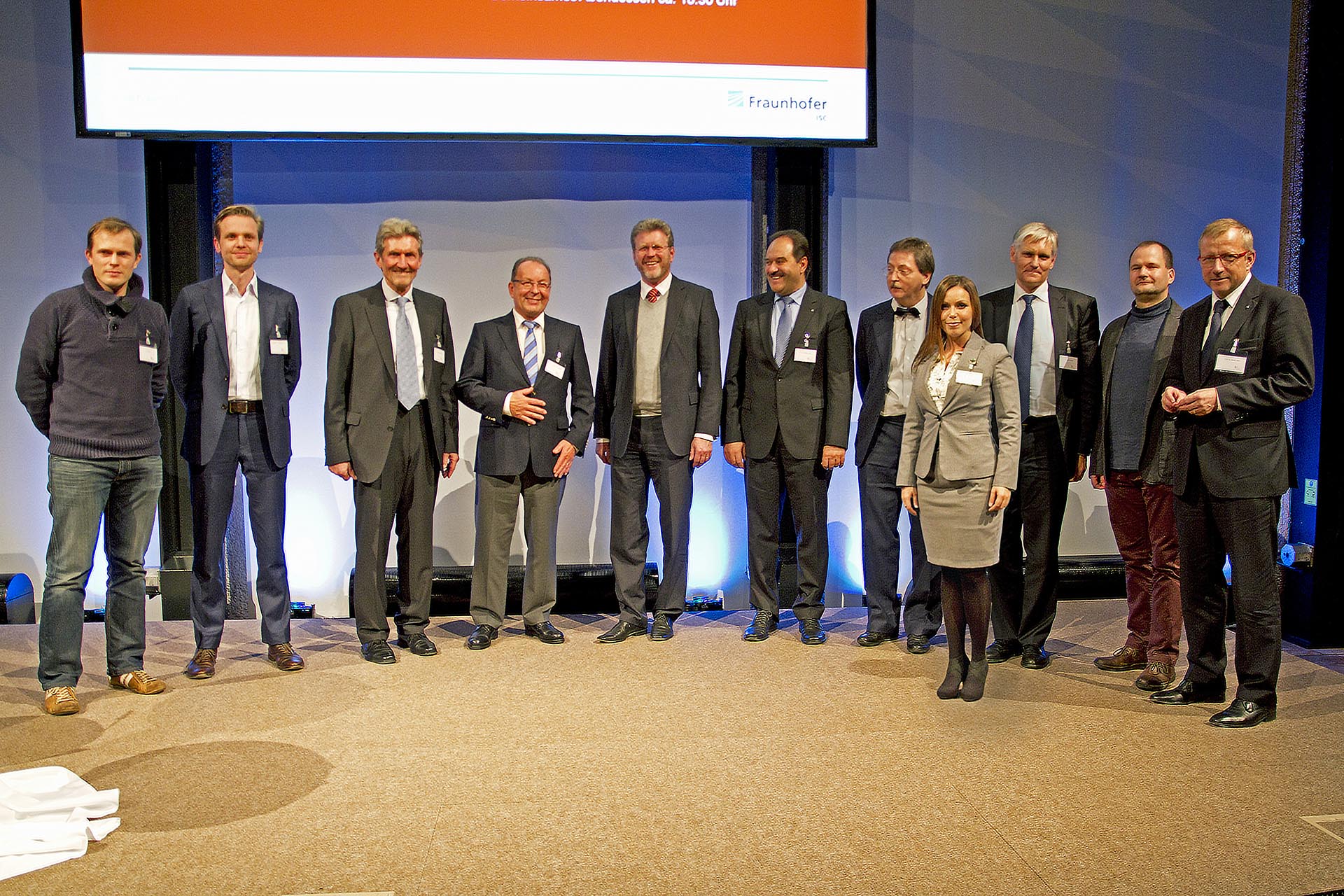Launch of the German Phosphorus Platform
Under the patronage of the German Minister of the Environment, the German Phosphorus Platform will be launched on 15 Nov 2013 at the Representation of the State of Bavaria to the German National Government in Berlin. The Bavarian State Minister of the Environment and Consumer Protection, Dr Marcel Huber, will be joined by well-respected representatives from research and industry in inaugurating the DPP. The parties are convening to make a "joint declaration" of their support for the objectives and tasks of this new organization in bringing politicians, scientists, producers and users to the same table. The objective is to achieve more responsible use of the element phosphorus, which is both vital to life and critical at the same time. Arnould Passenier, President at European Sustainable Phosphorus Platform (ESPP), will also be in attendance.
Phosphorus is special for the ecosystem. Phosphorus compounds are found in the carrier molecules in the genetic information of all living beings. It plays a central role in the metabolism of energy that takes place in biological cells as well as in a large number of other biological processes. Plant growth is also reliant upon a sufficient supply of this element. Accordingly, Phosphorus compounds are highly important in fertilizer applications for agricultural production. Moreover, there are also significant quantities of Phosphorus used in industrial applications, including the food and beverage industry, the construction materials and cleaning agents industry, and the semi-conductor and illuminants industry. Phosphorus is used in a broad spectrum of applications and in large quantities, with significant effects on the environment, such as over-fertilisation and water pollution incurred from agricultural use. In addition to these problems, there are further questions in the foreground today - how can the rising demand for food production in a growing global population be met, as well as the increasing demand in technical applications?
The necessity for political reaction to this challenge is underscored by the Bavarian State Minister of the Environmental and Consumer Protection Dr Marcel Huber: "This new Phosphorus Platform represents an important milestone for conserving natural resources. It is crucial that raw materials be handled conservatively and efficiently. The objective is to reuse valuable raw materials to the greatest extent possible, thereby avoiding the consumption of new raw materials. One of the focal points in recycling policy consists of reusing phosphorus. The State of Bavaria will be creating a Bavarian Phosphorus Strategy to that end. Germany's federal government could also utilise clear signals to encourage phosphorus recycling, such as suitable pilot projects or a recycling quota for Phosphorus over the medium-term." The Environment Minister Conference reacted to the critical situation regarding current Phosphorus utilisation at its 80th session on 7 June 2013, welcoming the initiative to set up a German Phosphorus Platform under the roof of the Fraunhofer Project Group for Materials Recycling and Resource Strategies IWKS.
"The availability of phosphorus is critical. Export-oriented phosphorus extraction is limited to a few countries, which means that supply security is dependent upon geopolitical circumstances - not, over the medium-term, on the mining sites, which de facto bear around 250 more years of exploitation", elucidates Prof Rudolf Stauber, Managing Director at Fraunhofer Project Group for Materials Recycling and Resource Strategies IWKS, which is hosting the German Phosphorus Platform (DPP, in its German abbreviation). Add to this that several storage sites exhibit undesirable contamination involving heavy metals and, in extreme cases, uranium. The use of these contaminated Phosphorus compounds can lead to new environmental pollution.
The issue of supply and pollution to ecosystems makes it necessary to have political support for strategies promoting efficient Phosphorus utilisation and, particularly, the reuse of Phosphorus via effective recycling and reprocessing systems, as well as promoting the objective of substituting Phosphorus in industrial production. Prof Gerhard Sextl, Director of the Fraunhofer Institute for Silicate Research ISC, and founding father of the Fraunhofer Project Group IWKS, describes one of the great challenges to this path: "Today's standard utilisation strategies in the main application areas, especially when it comes to the agrarian and construction materials sectors, distribute and immobilise Phosphorus such that reuse and return to the Phosphorus cycle is hardly possible." The use and/or implementation of Phosphorus is therefore associated with high dissipation levels and, in the case of the agrarian sector, additionally associated with pollution in ground and water, as well as with effects on biodiversity, on feed and consequently on food.
The DPP's objective is to develop sustainable phosphorus management in Germany in collaboration with the European Phosphorus Platform and with international phosphorus networks. "An initial, significant component will be setting up and maintaining an interactive information and monitoring database in the interest of adding transparency and quality assurance to the base of documentation in phosphorus material flows", says Dr Walter Schindler, from the group of experts at the Fraunhofer Project Group IWKS. In addition to networking with actors from the relevant industries, public and private organisations, and from research and development organisations, and bringing together knowledge and experience with regard to more efficient phosphorus utilisation, the subjects of reuse and the provision of secondary phosphorus resources are on the DPP's agenda. To that end, DPP Director, Prof Stefan Gäth, states: "Above all, this is also about developing, discussing and coordinating projects and concepts for optimising recycling processes. We will set up a Phosphorus Forum spanning multiple sectors and technologies in order to reinforce communication among technology developers, companies and political actors."
In Europe, too, there is great interest in collaborating with the DPP. In addition to Arnoud Passenier, President of the European Sustainable Phosphorus Platform and Representative of the Dutch Nutrient Platform, Dirk Halet of the Nutrient Platform of Flanders and Aida Tunovic from the Dutch Embassy in Berlin will be in attendance at the inauguration.
